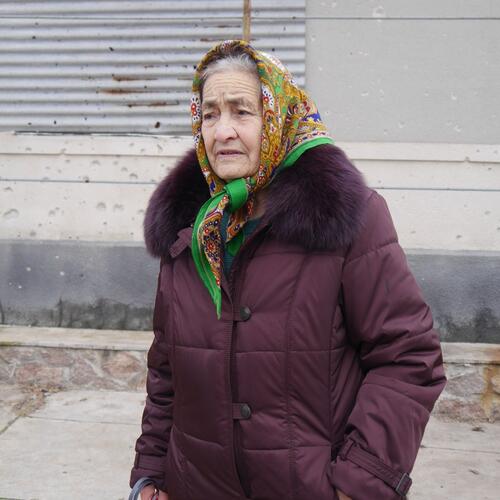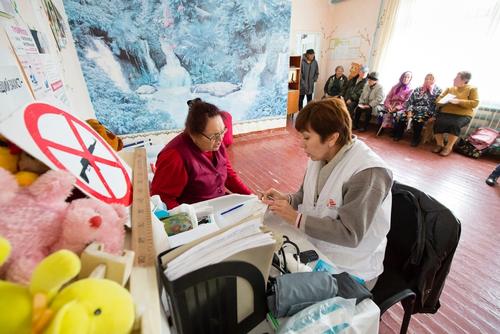
26,800
26,8
2,400
2,4
120
12

44
44
In eastern Ukraine, MSF scaled up its mobile clinics and operated in a total of 28 locations. The teams offered primary healthcare and psychological support to those living in or near the conflict zone, including internally displaced people. The majority of patients are aged over 50 and have chronic diseases.
In addition, MSF provided training in psychological support to assist healthcare workers and teachers living and working in the conflict zone.
Hepatitis C
MSF opened a hepatitis C programme in Mykolaiv region, providing treatment with two effective direct-acting antivirals – daclatasvir and sofosbuvir – as well as diagnostic tests, patient support, education and counselling services. Some patients are co-infected with HIV or on opioid substitution therapy; others are healthcare workers infected with the virus.
Handover of care for drug-resistant tuberculosis (DR-TB) patients in the penitentiary system
At the end of November, MSF handed over care of patients with DR-TB in the penitentiary system in Dnipro and Donetsk. In order to ensure continuity of care, a transfer plan was put in place for each patient, including the provision of medication to enable them to finish their treatment. MSF is also now working to open a new programme in Zhytomyr to treat DR-TB patients in the general population.
150
15
5.7 M
5.7M
1999
1999
Patient Story
Bakhtilie Akhmadullova, 73, lives in Granitne, a village on the frontline in eastern Ukraine. Both her sons and their families had to abandon their houses after they were damaged in shelling and the roofs collapsed.
Thanks to the help of civil society organisations, they are slowly rebuilding their homes but Bakhtilie continues to sleep in her clothes, for fear that further shelling could force them to take refuge in their dark, narrow basement.
After heavy shelling in 2015, Bakhtilie began to lose her voice and now speaks in a low croak. She does not understand why this has happened. Bakhtilie also suffers from hypertension. In order to prevent a deterioration in her condition, she receives free medical advice and medication from doctors and nurses at one of MSF’s mobile clinics, which visits the village twice a week.



















